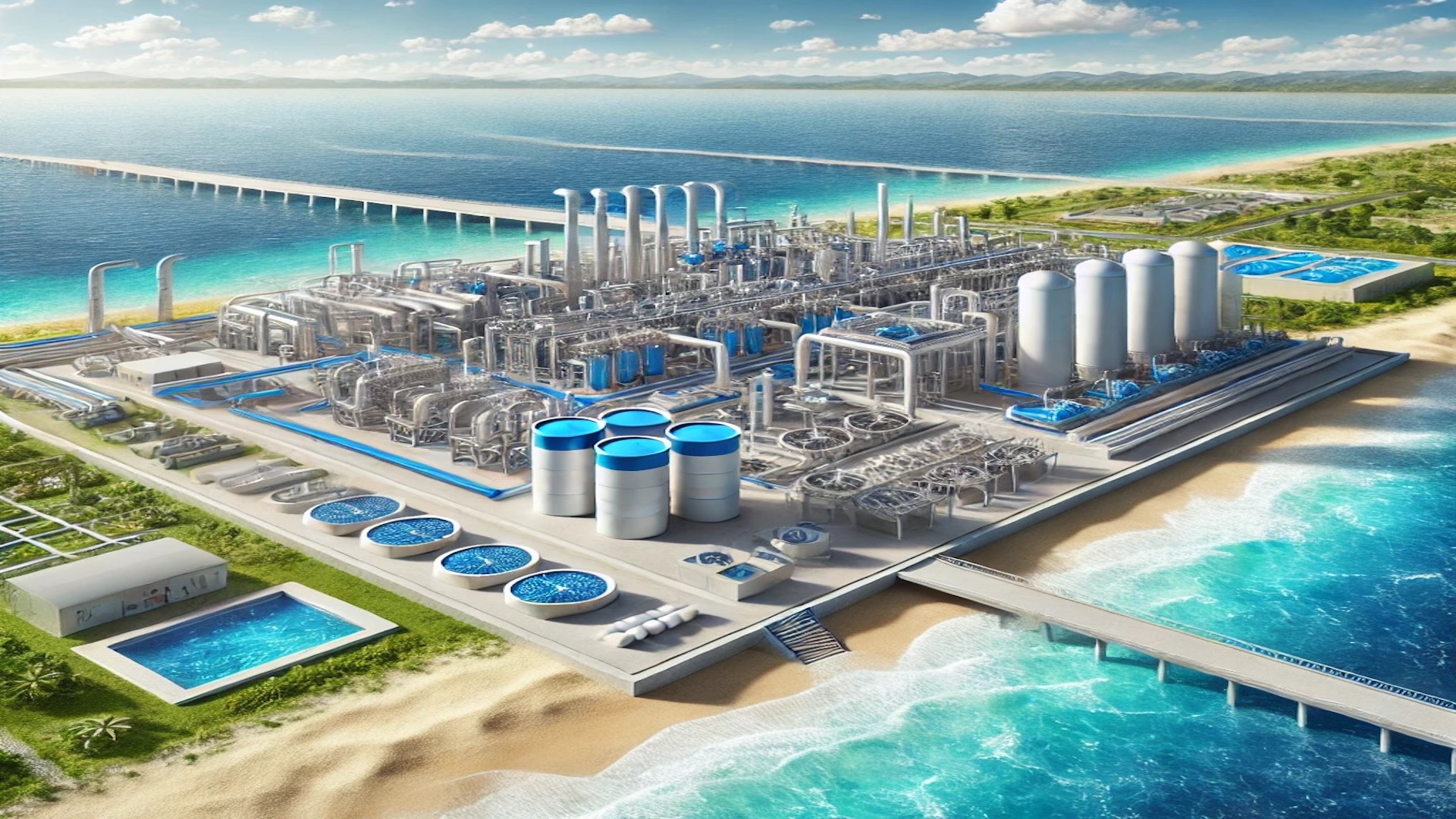
SEA WATER DESALINATION PLANT
A sea water desalination plant is a specialized facility designed to convert seawater into potable or industrial-grade fresh water. This process is crucial in regions facing water scarcity or arid climates. The technology predominantly used in these plants is reverse osmosis (RO), where seawater is forced through semi-permeable membranes at high pressure to separate salts and impurities. Pre-treatment systems, including filtration and chemical dosing, ensure the seawater is free from large particles and organic matter, enhancing membrane efficiency and longevity.
Advanced desalination plants incorporate energy recovery devices to reduce operational costs and environmental impact. Some also use multi-effect distillation (MED) or vapor compression for higher efficiency. These plants are highly automated, with monitoring systems ensuring optimal performance and minimal human intervention.
Advantages:
1. Reliable Freshwater Supply: Provides a sustainable solution in water-scarce regions.
2. Scalability: Can be designed for small communities or large-scale industrial needs.
3. Advanced Technology: Energy-efficient processes like RO and MED reduce energy consumption and costs.
4. Versatility: Supports industrial, agricultural, and municipal applications.
Despite its advantages, challenges like brine disposal and high energy requirements are addressed through continuous innovations. Modern plants prioritize eco-friendly designs and renewable energy integration, ensuring minimal environmental impact.